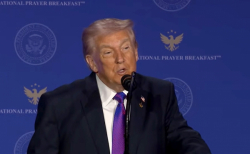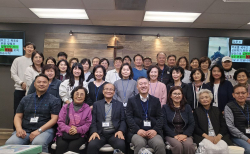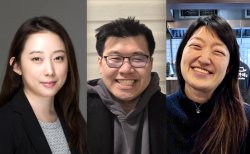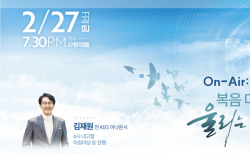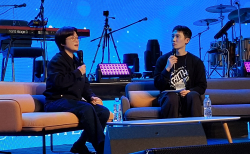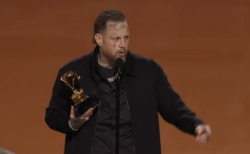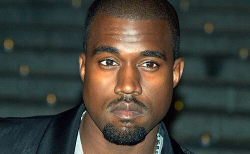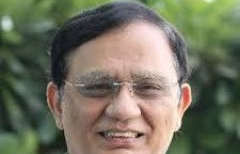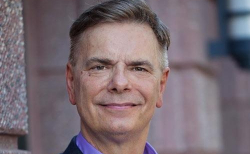
[한글 번역 아래]
When I saw the breaking news that Kim Jong-Il had died, I sat numbly on my bed for what seemed like hours, shocked. My phone was exploding -- friends and teachers wanted to know my thoughts, now that the “Dear Leader” was dead. But before I could react properly, images flashed across my mind: the faces of the North Korean refugees at Durihana. What does this mean for girls like my roommate, who was forced to hide in China for 12 years after escaping out of her home country? What about children like Min-Ju, who was born -- illegally -- in China to a North Korean defector? Or people like Oak-Hee, who had watched helplessly as her entire family die of starvation? What would happen to the 200,000 innocent individuals in prison camps? As these questions plagued my mind, I began to grow intensely nervous about the consequences of this power transition. No matter where I looked, I could not find answers to any of my questions. Everything was shrouded by a cloud of uncertainty and for the moment, the world seemed to be holding its breath.
Then came the press releases by the North Korean government and official newspapers. The regime stated that “the world’s foolish politicians” should not expect any change from the regime. In fact, in regards to the human rights crisis, circumstances are becoming worse. For the past decade or so, it was relatively easy for North Koreans to escape across the Tumen River and into China because they were able to bribe the North Korean guards posted along the riverbank. But this was the reality during Kim Jong-Il’s reign. With the dawn of Kim Jong-Un’s rule, the new leader has already issued orders to the military to shoot anyone who attempts to cross the Tumen River, and as soon as he is in sight. News agencies reported that three individuals were shot and killed the very day Kim Jong-Un was sworn in as Commander.
Reading these reports brought to mind the story of one defector I met while I was in South Korea last summer. Han-Min is 22 years old, healthy, muscular, and handsome. But when it comes to his height, he's no taller than I am. As a statistic, North Koreans are three to four inches shorter than Southerners due to malnutrition and starvation, and Han-Min is no exception. Han-Min is very self-conscious about his height--he knows that that part of him is a permanent and obvious manifestation of his sufferings in North Korea. While growing up, he was so hungry and without food that he walked to animal farms to scavenge through pigs’ feces for bits of food. If he was lucky enough to come across a mouse, that too became edible. Han-Min looked embarrassed as he told these facts about his life coldly to me. "I don't know if I should say this, but..." he said many times before revealing grotesque details about the kinds of things he ate because he was so hungry.
"As I was eating these things, I asked myself, not even ten years old then, 'Why do I have to live like this?'" And then he started seeing dead people.
Some days, Han-Min would go down to the Tumen River to search for fish. On one occasion, he looked up and caught sight of a woman's body floating face-down in the river. "I didn't know what it was at first," he recounted. "Then, as her corpse drifted closer to me, I saw disintegrating flesh. Some cruel kids who were obviously used to seeing this shouted behind me, 'Hey, look! Another dead person!' They began throwing rocks at the body, and I'll never forget that sound: the tuk, tuk, tuk, as the stones made contact with the girl's skin before entering the water.” He shuddered before looking away from me.
"Then the bodies came more often, and although I didn't know how they had died, you can only imagine it was because they were starving like me and tried to escape across the river and into China," Han-Min said.
There are hundreds of thousands of stories similar to that of Han-Min. Some of the refugees I met were forced to resort to violence and crime in China as a means to attaining food. Others spent months in political prison camps for attempting to leave the country, receiving brutal beatings and torture treatments. Others still were sold as sex slaves to Chinese farmers and were forced to marry men they had never seen before. To this day, many have risked their lives in search of security and freedom, successfully reaching South Korea or the United States, but these atrocities are taking place as we speak.
I appeal to your consciences. The human rights crisis in North Korea is not just a North Korean issue, nor is it just an Asian issue or even a political issue. We may be divided over whether the North Koreans’ displays of grief are real, but of several truths we are certain. The Soviet-style prison camps are real. The starvation, malnutrition, and disease are real. The trafficking of North Korean women and girls is real. The plight of the stateless orphans roaming China is real. Finally, the unimaginable suffering of millions of innocent human beings is real.
No matter what the North Korean regime says or does, we must continue to expose the atrocities taking place in this nation and work toward positive change. There is truth in the regime’s statement that the world should not expect anything different under the new leader; thus, we cannot expect or wait for Kim Jong-Un to discover his conscience and undo the crimes of his father and grandfather before him. The only voice left to defend the North Korean people is ours -- we who enjoy prosperity, health, and, above all, freedom. With the God-given conscience we have been granted, it is our responsibility, as Korean-Americans, Americans, and as citizens of the world, to use our freedoms to advocate for the liberty of 24 million North Koreans.
<번역>
김정일이 사망했다는 뉴스를 전해들었을때, 나는 충격으로 몇시간쯤으로 느껴질 정도로 멍하게 침대에 앉아 있었습니다. 제 전화기는 불이 나게 울려댔습니다. 친구들, 선생님들이 그들의 "친애하는 리더" 김정일이 죽은 사실에 대한 내 생각을 듣고 싶어했습니다.
그러나 대답하기 전에 내 마음 속에 먼저 떠오른 생각이 있었습니다. 두리하나에서 본 탈북자들의 얼굴입니다. 내 룸메이트 였던 소녀들에게 이것은 어떤 의미일까? 탈북자 엄마가 중국에서 낳아 불법이라는 표를 달고 세상에 나온 민주에게는, 온 가족이 굶주림에 죽어가는 것을 힘없이 지켜볼 수 밖에 없었던 옥희에게는 어떤 의미일까? 그리고 정치범 수용소에 갇힌 무죄한 20만명의 북한 사람들에게는 무슨 일이 일어날까?
이런 질문들이 내 마음 속에 가득 차면서, 나는 권력 계승 과정에서 일어날 수 있는 결과에 대한 극도의 초조함이 생기기 시작했습니다. 어디를 찾아도 내가 가진 질문에 대한 답을 찾을 수는 없었습니다. 모든 것이 불명확성이란 안개 속에 가려져 희미했고, 세계는 숨을 멈추고 기다리는 듯 했습니다.
그리고 나서 북한 정부 언론을 통해 발표된 정보들이 흘러나왔습니다. 북한 정부는 "세계의 무식한 정치인들은 체제로부터 어떤 변화도 기대하지 마라"라고 발표했습니다. 사실 북한 인권 위기에 대해서 말한다면, 오히려 환경은 더 열악해 졌습니다. 지난 10여년 간 강변을 지키는 군인들이 북한 주민들의 뇌물을 받고 탈북을 눈감아 줬기 때문에, 상대적으로 탈북은 쉬웠습니다. 그러나 이것은 김정일 정권 때의 이야기입니다.
김정은이라는 독재자가 권력을 잡으면서, 그는 벌써부터 두만강을 건너려고 시도하는 모든 북한 주민들을 즉시 총살하라는 명령을 내렸습니다. 최근 언론을 통해 김정은이 군최고사령관이 되자마자 북한 주민 3명을 총살했다는 보도도 나왔습니다.
이런 글을 읽으면서 지난 여름 한국에 있는 동안 만났던 탈북자 한 명의 이야기가 떠올랐습니다. 한민이라는 탈북자는 22살이며 건강하고 잘생긴 사람입니다. 하지만 키는 제 키와 거의 비슷합니다. 통계적으로 봤을 때, 북한 사람들은 영양부족과 굶주림으로 인해서 한국 사람에 비해 3~4인치 정도 작다고 합니다. 거기에 대해선 한민이도 예외는 아니었습니다. 한민이는 그의 키가, 영원히 가지고 가야할 북한에서의 고통의 증거라고 생각했습니다.
자라면서, 그는 너무 배가 고팠지만 먹을 것이 없어서 농장으로 가서 돼지 배설물을 뒤져 음식을 찾았다고 했습니다. 그 때 운 좋게 지나가는 쥐를 봤다면, 그것도 먹을 수 있었을 거라고도 말했습니다. 한민이는 이런 이야기를 차가운 말투로 아무렇지 않게 들려주면서도 조금 당황한 기색이 엿보였습니다.
"내가 이런 것까지 이야기해야 할 지 모르겠지만..." 그는 배가 고파서 먹었다는 믿기지 않는 것들에 대해 상세히 말하면서 여러번 이렇게 서두를 달았습니다.
"이런 것들을 먹으면서 나는 스스로에게 질문했어. 그 때가 10살 쯤이었는데, '내가 이렇게까지 살아야 하나?' 하면서 말이야. 그리고 그 때부터 죽은 사람들이 눈에 띄기 시작했어." 어느 날 한민이는 고기를 찾으러 두만강변에 내려갔습니다. 그 때 그는 얼굴을 아래 쪽으로 한, 죽은 여성의 시체가 물 위에 떠있는 것을 봤습니다.
"처음에는 그게 뭔지 몰랐어. 근데 점점 내 가까이 떠밀려오면서 알게 됐어. 산산조각이 난 사람이라는 것을 말이야. 극악무도한 어린 아이들은 '야 저기 봐, 또 죽은 사람이야'라며 돌을 던져댔지만, 난 그 때 돌덩이가 사람 피부에 닿으면서 낸 '턱턱' 하는 소리가 지금도 귓가에 들리는 것 같아." 그는 내게로부터 얼굴을 돌리기 전에 추운 듯 한번 어깨를 부르르 떨었습니다.
"그 다음부턴 시체들이 더 자주 눈에 띄기 시작했어. 어떻게 죽었는 지는 모르지만, 심하게 굶주렸거나 북한을 탈출하기 위해 두만강을 건너던 중이었다는 것을 짐작할 수 있었어." 한민이가 말했습니다.
한민이와 비슷한 이야기는 셀 수 없이 많았습니다. 제가 만난 탈북자 중에는 중국에서 음식을 얻기 위해 범죄나 폭력에 가담할 수 밖에 없었다는 사람도 있었습니다. 다른 사람들은 수개월을 정치범수용소에서 탈출하려고 시도하다가 잔인하게 구타당했던 기억을 회상하기도 했고, 또 다른 사람들은 중국 농부에게로 성노예로 팔리거나 한번도 본 적 없는 사람과 강제결혼 해야하는 신세가 되었다고 했습니다.
이날까지, 많은 사람들이 한국이나 미국에 성공적으로 닿아 안전과 자유를 누리기 위해 자신의 생명을 담보로 싸우고 있습니다. 하지만 이런 잔학행위들은 이 글을 쓰는 지금도 행해지고 있습니다.
여러분들의 양심에 호소합니다. 북한 내의 인권 위기는 북한 주민들만의 문제가 아니고 아시아만의 문제도 아니고 정치 문제는 더더욱 아닙니다. 지도자의 죽음 앞에 울부짖는 북한 주민들의 슬픔이 진짜인지 가짜인지에 대한 의견은 나눠질 수는 있습니다. 그러나 몇 가지는 명확한 진실입니다. 구 소련 스타일의 수용소는 진짜입니다. 굶주림과 영양실조, 질병들은 진짜입니다. 북한 여성들과 소녀들의 성매매는 진짜입니다. 국적없이 중국을 떠도는 고아들은 진짜입니다. 결국, 상상할 수 없는 수백만의 무죄한 사람들의 고통은 진짜입니다.
북한 정부가 어떤 말이나 행동을 한다고 해도, 우리는 계속 이 국가의 긍정적 변화를 위해 행동하고 이들의 고통을 세상에 알려야 합니다. 김정은 정권 아래 세계는 어떤 체제의 변화를 기대해서는 안된다는 그들의 발언은 진실입니다. 그래서 우리는 김정은이 양심의 가책을 느껴 그 아버지와 할아버지의 범죄들을 되돌릴 거라고 기대할 수도, 기다릴 수도 없습니다. 북한 주민들의 목소리를 대변할 수 있는 유일한 목소리는 번영과 건강, 그리고 무엇보다 자유를 누리고 있는 우리들입니다. 하나님께서 주신 양심을 가진 한인으로서, 또 미국인으로서, 세계의 시민으로서, 2,400만 북한주민들의 자유를 지지해 줄 자유를 사용할 수 있는 우리의 의무입니다.
정나리 학생 연락처) nahrie.chung@gmail.com
글=정나리 학생(오클라호마주 홀랜드홀고등학교 12학년)
번역=권나라 기자
When I saw the breaking news that Kim Jong-Il had died, I sat numbly on my bed for what seemed like hours, shocked. My phone was exploding -- friends and teachers wanted to know my thoughts, now that the “Dear Leader” was dead. But before I could react properly, images flashed across my mind: the faces of the North Korean refugees at Durihana. What does this mean for girls like my roommate, who was forced to hide in China for 12 years after escaping out of her home country? What about children like Min-Ju, who was born -- illegally -- in China to a North Korean defector? Or people like Oak-Hee, who had watched helplessly as her entire family die of starvation? What would happen to the 200,000 innocent individuals in prison camps? As these questions plagued my mind, I began to grow intensely nervous about the consequences of this power transition. No matter where I looked, I could not find answers to any of my questions. Everything was shrouded by a cloud of uncertainty and for the moment, the world seemed to be holding its breath.
Then came the press releases by the North Korean government and official newspapers. The regime stated that “the world’s foolish politicians” should not expect any change from the regime. In fact, in regards to the human rights crisis, circumstances are becoming worse. For the past decade or so, it was relatively easy for North Koreans to escape across the Tumen River and into China because they were able to bribe the North Korean guards posted along the riverbank. But this was the reality during Kim Jong-Il’s reign. With the dawn of Kim Jong-Un’s rule, the new leader has already issued orders to the military to shoot anyone who attempts to cross the Tumen River, and as soon as he is in sight. News agencies reported that three individuals were shot and killed the very day Kim Jong-Un was sworn in as Commander.
Reading these reports brought to mind the story of one defector I met while I was in South Korea last summer. Han-Min is 22 years old, healthy, muscular, and handsome. But when it comes to his height, he's no taller than I am. As a statistic, North Koreans are three to four inches shorter than Southerners due to malnutrition and starvation, and Han-Min is no exception. Han-Min is very self-conscious about his height--he knows that that part of him is a permanent and obvious manifestation of his sufferings in North Korea. While growing up, he was so hungry and without food that he walked to animal farms to scavenge through pigs’ feces for bits of food. If he was lucky enough to come across a mouse, that too became edible. Han-Min looked embarrassed as he told these facts about his life coldly to me. "I don't know if I should say this, but..." he said many times before revealing grotesque details about the kinds of things he ate because he was so hungry.
"As I was eating these things, I asked myself, not even ten years old then, 'Why do I have to live like this?'" And then he started seeing dead people.
Some days, Han-Min would go down to the Tumen River to search for fish. On one occasion, he looked up and caught sight of a woman's body floating face-down in the river. "I didn't know what it was at first," he recounted. "Then, as her corpse drifted closer to me, I saw disintegrating flesh. Some cruel kids who were obviously used to seeing this shouted behind me, 'Hey, look! Another dead person!' They began throwing rocks at the body, and I'll never forget that sound: the tuk, tuk, tuk, as the stones made contact with the girl's skin before entering the water.” He shuddered before looking away from me.
"Then the bodies came more often, and although I didn't know how they had died, you can only imagine it was because they were starving like me and tried to escape across the river and into China," Han-Min said.
There are hundreds of thousands of stories similar to that of Han-Min. Some of the refugees I met were forced to resort to violence and crime in China as a means to attaining food. Others spent months in political prison camps for attempting to leave the country, receiving brutal beatings and torture treatments. Others still were sold as sex slaves to Chinese farmers and were forced to marry men they had never seen before. To this day, many have risked their lives in search of security and freedom, successfully reaching South Korea or the United States, but these atrocities are taking place as we speak.
I appeal to your consciences. The human rights crisis in North Korea is not just a North Korean issue, nor is it just an Asian issue or even a political issue. We may be divided over whether the North Koreans’ displays of grief are real, but of several truths we are certain. The Soviet-style prison camps are real. The starvation, malnutrition, and disease are real. The trafficking of North Korean women and girls is real. The plight of the stateless orphans roaming China is real. Finally, the unimaginable suffering of millions of innocent human beings is real.
No matter what the North Korean regime says or does, we must continue to expose the atrocities taking place in this nation and work toward positive change. There is truth in the regime’s statement that the world should not expect anything different under the new leader; thus, we cannot expect or wait for Kim Jong-Un to discover his conscience and undo the crimes of his father and grandfather before him. The only voice left to defend the North Korean people is ours -- we who enjoy prosperity, health, and, above all, freedom. With the God-given conscience we have been granted, it is our responsibility, as Korean-Americans, Americans, and as citizens of the world, to use our freedoms to advocate for the liberty of 24 million North Koreans.
<번역>
김정일이 사망했다는 뉴스를 전해들었을때, 나는 충격으로 몇시간쯤으로 느껴질 정도로 멍하게 침대에 앉아 있었습니다. 제 전화기는 불이 나게 울려댔습니다. 친구들, 선생님들이 그들의 "친애하는 리더" 김정일이 죽은 사실에 대한 내 생각을 듣고 싶어했습니다.
그러나 대답하기 전에 내 마음 속에 먼저 떠오른 생각이 있었습니다. 두리하나에서 본 탈북자들의 얼굴입니다. 내 룸메이트 였던 소녀들에게 이것은 어떤 의미일까? 탈북자 엄마가 중국에서 낳아 불법이라는 표를 달고 세상에 나온 민주에게는, 온 가족이 굶주림에 죽어가는 것을 힘없이 지켜볼 수 밖에 없었던 옥희에게는 어떤 의미일까? 그리고 정치범 수용소에 갇힌 무죄한 20만명의 북한 사람들에게는 무슨 일이 일어날까?
이런 질문들이 내 마음 속에 가득 차면서, 나는 권력 계승 과정에서 일어날 수 있는 결과에 대한 극도의 초조함이 생기기 시작했습니다. 어디를 찾아도 내가 가진 질문에 대한 답을 찾을 수는 없었습니다. 모든 것이 불명확성이란 안개 속에 가려져 희미했고, 세계는 숨을 멈추고 기다리는 듯 했습니다.
그리고 나서 북한 정부 언론을 통해 발표된 정보들이 흘러나왔습니다. 북한 정부는 "세계의 무식한 정치인들은 체제로부터 어떤 변화도 기대하지 마라"라고 발표했습니다. 사실 북한 인권 위기에 대해서 말한다면, 오히려 환경은 더 열악해 졌습니다. 지난 10여년 간 강변을 지키는 군인들이 북한 주민들의 뇌물을 받고 탈북을 눈감아 줬기 때문에, 상대적으로 탈북은 쉬웠습니다. 그러나 이것은 김정일 정권 때의 이야기입니다.
김정은이라는 독재자가 권력을 잡으면서, 그는 벌써부터 두만강을 건너려고 시도하는 모든 북한 주민들을 즉시 총살하라는 명령을 내렸습니다. 최근 언론을 통해 김정은이 군최고사령관이 되자마자 북한 주민 3명을 총살했다는 보도도 나왔습니다.
이런 글을 읽으면서 지난 여름 한국에 있는 동안 만났던 탈북자 한 명의 이야기가 떠올랐습니다. 한민이라는 탈북자는 22살이며 건강하고 잘생긴 사람입니다. 하지만 키는 제 키와 거의 비슷합니다. 통계적으로 봤을 때, 북한 사람들은 영양부족과 굶주림으로 인해서 한국 사람에 비해 3~4인치 정도 작다고 합니다. 거기에 대해선 한민이도 예외는 아니었습니다. 한민이는 그의 키가, 영원히 가지고 가야할 북한에서의 고통의 증거라고 생각했습니다.
자라면서, 그는 너무 배가 고팠지만 먹을 것이 없어서 농장으로 가서 돼지 배설물을 뒤져 음식을 찾았다고 했습니다. 그 때 운 좋게 지나가는 쥐를 봤다면, 그것도 먹을 수 있었을 거라고도 말했습니다. 한민이는 이런 이야기를 차가운 말투로 아무렇지 않게 들려주면서도 조금 당황한 기색이 엿보였습니다.
"내가 이런 것까지 이야기해야 할 지 모르겠지만..." 그는 배가 고파서 먹었다는 믿기지 않는 것들에 대해 상세히 말하면서 여러번 이렇게 서두를 달았습니다.
"이런 것들을 먹으면서 나는 스스로에게 질문했어. 그 때가 10살 쯤이었는데, '내가 이렇게까지 살아야 하나?' 하면서 말이야. 그리고 그 때부터 죽은 사람들이 눈에 띄기 시작했어." 어느 날 한민이는 고기를 찾으러 두만강변에 내려갔습니다. 그 때 그는 얼굴을 아래 쪽으로 한, 죽은 여성의 시체가 물 위에 떠있는 것을 봤습니다.
"처음에는 그게 뭔지 몰랐어. 근데 점점 내 가까이 떠밀려오면서 알게 됐어. 산산조각이 난 사람이라는 것을 말이야. 극악무도한 어린 아이들은 '야 저기 봐, 또 죽은 사람이야'라며 돌을 던져댔지만, 난 그 때 돌덩이가 사람 피부에 닿으면서 낸 '턱턱' 하는 소리가 지금도 귓가에 들리는 것 같아." 그는 내게로부터 얼굴을 돌리기 전에 추운 듯 한번 어깨를 부르르 떨었습니다.
"그 다음부턴 시체들이 더 자주 눈에 띄기 시작했어. 어떻게 죽었는 지는 모르지만, 심하게 굶주렸거나 북한을 탈출하기 위해 두만강을 건너던 중이었다는 것을 짐작할 수 있었어." 한민이가 말했습니다.
한민이와 비슷한 이야기는 셀 수 없이 많았습니다. 제가 만난 탈북자 중에는 중국에서 음식을 얻기 위해 범죄나 폭력에 가담할 수 밖에 없었다는 사람도 있었습니다. 다른 사람들은 수개월을 정치범수용소에서 탈출하려고 시도하다가 잔인하게 구타당했던 기억을 회상하기도 했고, 또 다른 사람들은 중국 농부에게로 성노예로 팔리거나 한번도 본 적 없는 사람과 강제결혼 해야하는 신세가 되었다고 했습니다.
이날까지, 많은 사람들이 한국이나 미국에 성공적으로 닿아 안전과 자유를 누리기 위해 자신의 생명을 담보로 싸우고 있습니다. 하지만 이런 잔학행위들은 이 글을 쓰는 지금도 행해지고 있습니다.
여러분들의 양심에 호소합니다. 북한 내의 인권 위기는 북한 주민들만의 문제가 아니고 아시아만의 문제도 아니고 정치 문제는 더더욱 아닙니다. 지도자의 죽음 앞에 울부짖는 북한 주민들의 슬픔이 진짜인지 가짜인지에 대한 의견은 나눠질 수는 있습니다. 그러나 몇 가지는 명확한 진실입니다. 구 소련 스타일의 수용소는 진짜입니다. 굶주림과 영양실조, 질병들은 진짜입니다. 북한 여성들과 소녀들의 성매매는 진짜입니다. 국적없이 중국을 떠도는 고아들은 진짜입니다. 결국, 상상할 수 없는 수백만의 무죄한 사람들의 고통은 진짜입니다.
북한 정부가 어떤 말이나 행동을 한다고 해도, 우리는 계속 이 국가의 긍정적 변화를 위해 행동하고 이들의 고통을 세상에 알려야 합니다. 김정은 정권 아래 세계는 어떤 체제의 변화를 기대해서는 안된다는 그들의 발언은 진실입니다. 그래서 우리는 김정은이 양심의 가책을 느껴 그 아버지와 할아버지의 범죄들을 되돌릴 거라고 기대할 수도, 기다릴 수도 없습니다. 북한 주민들의 목소리를 대변할 수 있는 유일한 목소리는 번영과 건강, 그리고 무엇보다 자유를 누리고 있는 우리들입니다. 하나님께서 주신 양심을 가진 한인으로서, 또 미국인으로서, 세계의 시민으로서, 2,400만 북한주민들의 자유를 지지해 줄 자유를 사용할 수 있는 우리의 의무입니다.
정나리 학생 연락처) nahrie.chung@gmail.com
글=정나리 학생(오클라호마주 홀랜드홀고등학교 12학년)
번역=권나라 기자
© 2020 Christianitydaily.com All rights reserved. Do not reproduce without permission.

